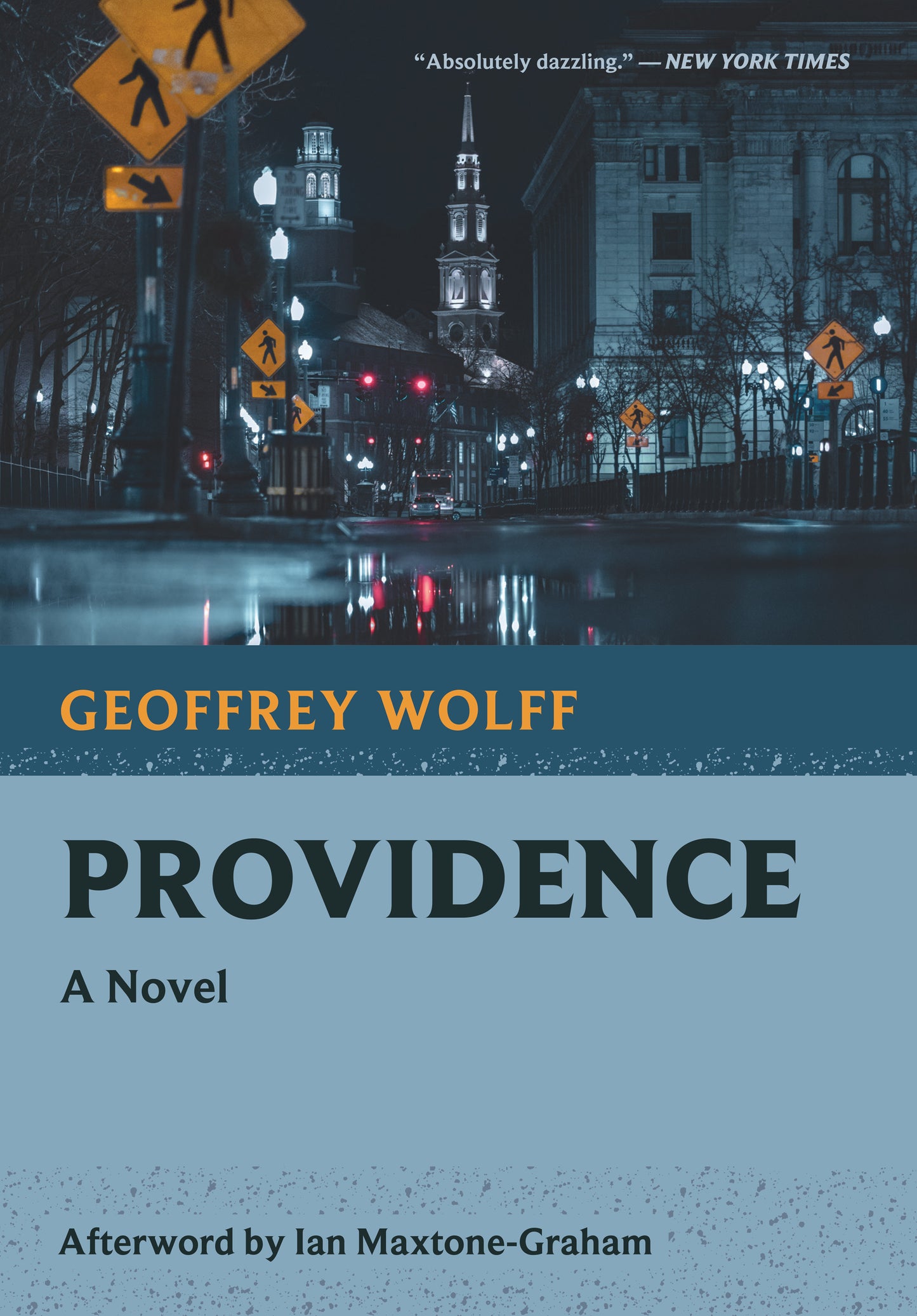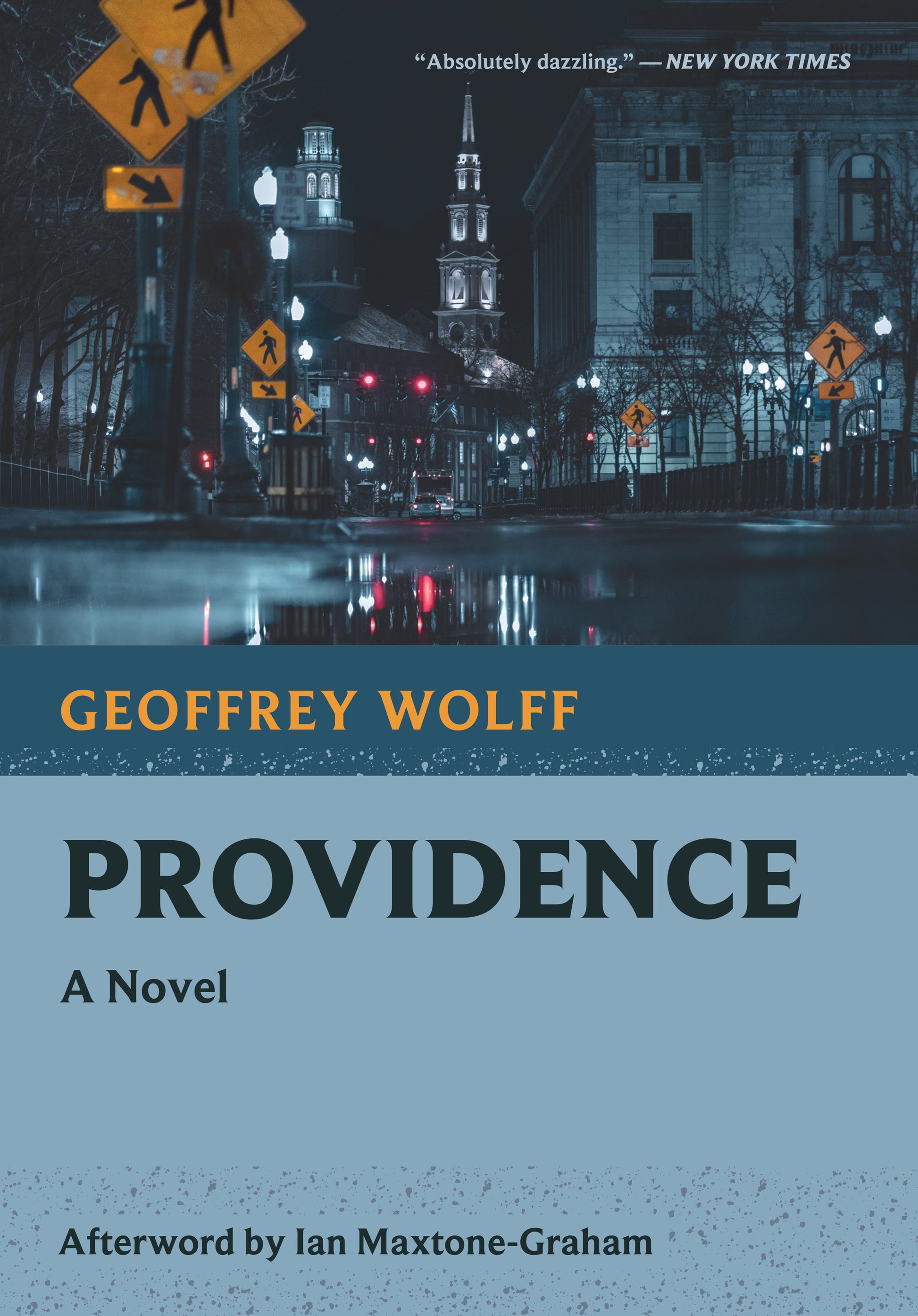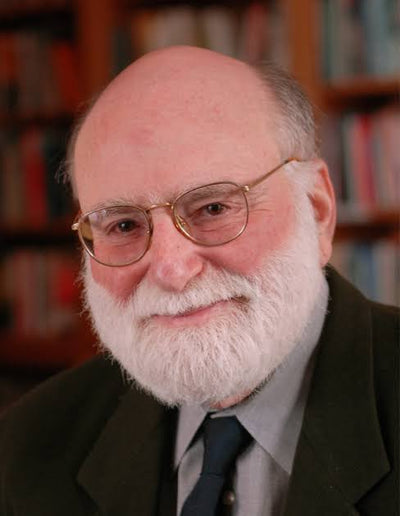
Attorney Adam Dwyer has six months to live. Carla Dwyer has to try and relax. Lieutenant Tom Cocoran has twenty years on the force. Baby and Skippy have a couple of hours to kill. All five of these people will never be the same after a series of violent events, hilarious as they are tragic, upset the equilibrium of life in a small, strange city.
Between Boston and New York City lies Providence, Rhode Island. Long considered one of the most corrupt cities in the country, it was often difficult to discern who was more corrupt, the mafia bosses or the suits at city hall. But as the story begins it was definitely a gangland figure (known as “The Moron”) whose slashed, bullet-ridden body Lieutenant Cocoran fished from the Providence River.
Providence is a fast-paced black comedy of parallel lives in the small, East Coast port city. Adam Dwyer is a criminal lawyer dying of leukemia. He and his wife Clara receive another blow when their home is robbed by two young thugs, Skippy and Baby. Tom Corcoran, the police officer assigned to the case, becomes involved with Skippy’s waitress girlfriend, Lisa.
Long out of print, this New York Times bestselling novel is a raucous gallery of grotesques, a litany of sex, violence, crime, and corruption cast against a precisely drawn portrait of Providence, from the streets of Federal Hill (home of the city's mafiosi) to the fashionable upper East Side (rife with homes ripe for robbing).
This book is part of Godine's Nonpareil series and includes a new afterword by acclaimed television and film writer Ian Maxtone-Graham.
Praise for Providence
“ ‘Well, if you lived in Providence,’ Geoffrey Wolff writes in his 1986 novel, ‘it was difficult not to feel a shiver of pride...that the whole New England mob got run out of a laundry on Atwells Avenue.’ And pride is what I felt upon rereading this funny, audacious, spitfire of a novel. My beloved city is captured perfectly here, from Federal Hill to College Hill, it’s all in here—WJAR, the Agawam, the Brown rink, Benevolent Street—full of the kind of characters that populate this ‘jerkwater that outsiders bombed past on their way to Cape Cod.’ What a delight to have this Providence back in the world.” —Ann Hood, author of The Knitting Circle
“What distinguishes Providence from most thrillers, from most novels really, is the care it takes in its language. Wolff’s ear is perfect....If Ezra Pound had written a thriller, it might have been Providence.” —David Remnick, author of Holding the Note and editor of The New Yorker
“Absolutely dazzling.” —New York Times
“The plot catches you by the throat.” —The Atlantic
“Geoffrey Wolff is probably one of the best writers in America. I can tell you that each of the few times I put Providence down I looked at the jacket photograph of the author and wished, with distressing envy, that I could write about a third as well.” —Thomas Mallon in The American Spectator
“Cruises along like a hot-wired Mercedes.” —Cleveland Plain Dealer
“Tough-minded, funny, and savage.” —Boston Globe
“Nerve-racking...it will give any reader a stepped-up pulse.” —People
“Providence, R.I., is more than the backdrop for this intriguing tale; the city, faultlessly captured, assumes a role as crucial as those played by the main characters. Wolff’s setting and characters come alive in a way that may shock and frighten some readers.” —Publishers Weekly
“Providence overspills with characters of consequence, with the speech and sounds of a place and time. It reads like one long chase scene, whirling from subplot to subplot, person to person. The result is exhilarating.” —Wall Street Journal
“The plot catches you by the throat. The subtlety in Providence lies . . . above all in the writing. It includes multitudes, the writing does: wisps from the old masters, the latest burble from pop culture, media noise, drug talk, Valspeak East—everything is here.” —The Atlantic
“Providence is simply the pleasurable/morally terrifying novel one always hopes to find and seldom does.” —Village Voice
“Ingenious structure, flawless rhythms of speech, elegantly restrained imagery.” —Los Angeles Times
“Providence is a history, a veiled commentary on how America as we know it came be.” —New Republic


